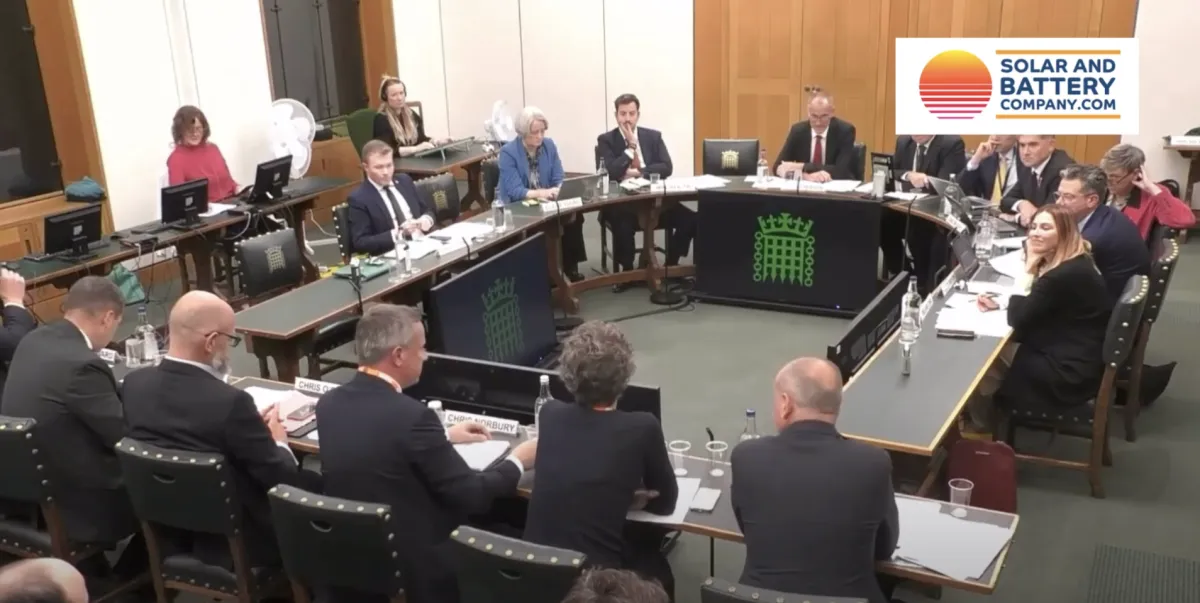
UK Energy Bosses Warn: Electricity Bills Will Keep Rising. Even If Wholesale Prices Fall
UK Energy Bosses Warn: Electricity Bills Will Keep Rising. Even If Wholesale Prices Fall
UK Energy Leaders Confirm: Electricity Bills Are Going Up
Yesterday, for the first time in a long while, we heard it categorically from the leaders of the Big Six energy companies, our bills are not going down, they’re going up.
They gave evidence to the Government’s Energy Security and Net Zero Committee. We’ve included some key highlights below, though it’s worth watching the full session to see everything that was said. We’ve included official government links at the bottom of the article.
We here at SolarandBatteryCompany.com have said for a long time that electricity prices are going to continue to rise every year (despite what whoever is in government says), for a number of reasons. Some of those reasons being a result of government policy and the costs attributed to all of our bills because of them. This was laid out by industry leaders to the select committee.
It’s Not Just Wholesale Prices. Non-Commodity Costs Are Adding Pressure
The leaders of each energy company have all warned that non-commodity costs, (that’s the fixed part of your bill covering things like network upgrades, policy costs and government levies), are now the main driver behind higher prices.
Rachel Fletcher, Director of Regulation at Octopus Energy told MPs that even if wholesale prices were cut in half, household bills would still rise by around 20%, adding roughly £300 a year in additional charges. This begs the question… how much more are they going to rise than the 20% claimed? Because one thing that will not happen is a reduction of 50% in wholesale prices, they are going to continue to go up, like they always have due to basic economics and inflation. Meaning that a 20% rise could easily turn into a 30-50% increase within just four years
Even If Electricity Were Free, Bills Would Stay the Same
E.ON U.K.’s Chief Executive Chris Norbury went even further, suggesting that by 2030, even if wholesale electricity were free, we’d still be paying roughly what we do today due to policy and network charges. Just think that through for a moment, he’s saying that even if it cost nothing to buy electricity, the price we pay to use it would still be the same that it is today (26-28p), purely because of government add-ons.
Chief Executive of EDF U.K. Simone Rossi confirmed that “even if the commodity prices were to half, then bills will still rise”. Unfortunately for households, not only is he saying that prices for us would still rise if commodity costs were halved, the truth is, commodity costs are going to increase, so our bills will rise steeply in the coming years.
Why Prices Could Rise by 30-50% in Just a Few Years
Even if the global market calms down, the real pressure on UK households will come from the infrastructure spend baked into the system. In reality, that means bills are more likely to rise by 25–30% or more over the coming years, not fall.
That means paybacks on solar and battery installations are likely to outperform even our conservative estimates.
What This Means for Homeowners
It’s easy to assume that as the price of wholesale electricity drops, our household bills will follow. Unfortunately, that’s not what’s going to happen and there’s a good reason why your electricity costs are likely to keep climbing over the next few years, even if the market stabilises.
In the full session, Simone Rossi spoke about how the surge in demand for solar and battery systems during the Ukraine crisis came from people wanting more control over their electricity prices. That rush in demand led to a spike in material costs and inflated installation prices. With energy prices now predicted to climb back toward those levels, it’s reasonable to assume demand for solar and battery installations will rise sharply again. It may therefore be worth considering a solar and battery system sooner rather than later, before high demand and potential price increases return.
This link will take you to the official government page: https://committees.parliament.uk/event/25089/formal-meeting-oral-evidence-session/
